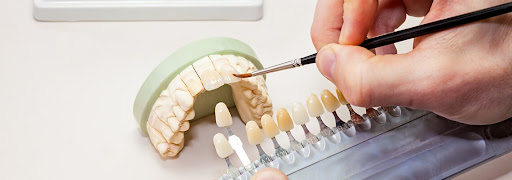If you’re experiencing diarrhea, understanding how long it might last is crucial for managing symptoms and knowing when to seek help. According to a leading gastroenterologist in Delhi, diarrhea duration can vary widely based on the underlying cause. From a few hours to several days or even weeks, this post delves into the factors affecting diarrhea duration, types of diarrhea, and when it’s time to consult a specialist for proper diagnosis and treatment.
Understanding Diarrhea: Acute vs. Chronic
Diarrhea is characterized by loose or watery stools that occur more frequently than usual. It is broadly categorized into two types:
- Acute Diarrhea: Lasts for a few days, typically less than two weeks.
- Chronic Diarrhea: Persists for more than two weeks, sometimes lasting several weeks or longer.
The duration largely depends on the cause, which could range from viral and bacterial infections to food intolerances or underlying gastrointestinal conditions.
Common Causes of Diarrhea and Their Durations
-
Infections: Viral, Bacterial, and Parasitic
-
Viral Infections: Viral gastroenteritis, commonly known as the stomach flu, is a frequent cause of acute diarrhea. It is often caused by viruses like rotavirus or norovirus. Diarrhea from viral infections usually lasts 2-3 days but can extend up to a week in some cases.
-
Bacterial Infections: Bacteria such as Salmonella, E. coli, and Campylobacter can cause food poisoning, leading to diarrhea that may last from a few days to over a week, depending on the severity of the infection and whether antibiotics are required.
-
Parasitic Infections: Parasites like Giardia lamblia or Entamoeba histolytica can cause diarrhea that lasts several weeks. Treatment usually involves specific antiparasitic medications, and the duration of symptoms depends on the timeliness and effectiveness of the treatment.
-
-
Food Intolerances and Allergies
Diarrhea resulting from food intolerances, such as lactose intolerance or gluten sensitivity, can last as long as the offending food is consumed. Once the food is eliminated from the diet, symptoms may subside within a few hours to a couple of days. However, if a person continues to consume the problematic food, diarrhea can persist intermittently or chronically.
-
Medications
Certain medications, including antibiotics, can cause diarrhea as a side effect. Antibiotic-associated diarrhea typically lasts for a few days to a week after completing the course of antibiotics. If diarrhea persists, it may indicate a more severe condition, such as Clostridioides difficile infection, which requires prompt medical attention.
-
Digestive Disorders
Conditions like Irritable Bowel Syndrome (IBS) or Inflammatory Bowel Disease (IBD), including Crohn’s disease and ulcerative colitis, can cause chronic diarrhea that may last for weeks, months, or even years. Managing these conditions often involves a combination of medication, dietary changes, and lifestyle modifications.
-
Post-Surgical Diarrhea
Diarrhea can occur after gastrointestinal surgery, such as gallbladder removal or bowel resection. The duration varies depending on the type of surgery and individual recovery rates. Post-surgical diarrhea can last from a few days to several weeks. In some cases, it may become a long-term issue requiring medical management.
-
Traveler’s Diarrhea
Traveler’s diarrhea, usually caused by consuming contaminated food or water, typically lasts 3-7 days. Most cases are mild and resolve without treatment, but if symptoms persist beyond a week or are accompanied by severe pain, dehydration, or blood in stools, medical attention is necessary.
Factors That Influence How Long Diarrhea Lasts
-
Severity of the Cause
The more severe the underlying cause, the longer diarrhea may last. For example, mild food poisoning might resolve in a day or two, while a severe bacterial infection might require a week or more of recovery.
-
Immune System Response
A person’s immune system plays a critical role in fighting infections. Individuals with weakened immune systems, such as the elderly, young children, or those with chronic illnesses, may experience longer durations of diarrhea.
-
Hydration and Nutrition
Staying hydrated and maintaining proper nutrition can help reduce the duration of diarrhea. Dehydration can worsen symptoms and prolong recovery time. Oral rehydration solutions (ORS) can help replenish lost fluids and electrolytes, aiding faster recovery.
-
Timely Medical Intervention
Early diagnosis and appropriate treatment can significantly reduce the duration of diarrhea. For instance, a gastroenterologist may prescribe medications such as antibiotics, antidiarrheal agents, or probiotics depending on the cause, which can help resolve symptoms faster.
When to See a Gastroenterologist
While most cases of diarrhea resolve on their own, it is essential to consult a healthcare professional if:
- Diarrhea persists for more than three days in adults or more than 24 hours in young children.
- There is severe abdominal pain, blood in stools, or a high fever.
- Symptoms of dehydration appear, such as dry mouth, excessive thirst, reduced urine output, or dizziness.
- There is a history of chronic digestive disorders, and diarrhea is a recurring issue.
Top gastroenterologist in Delhi can provide a comprehensive evaluation to identify the underlying cause and suggest appropriate treatment options.
Preventive Measures to Reduce Duration
-
Stay Hydrated
Drink plenty of fluids, especially water, and consider oral rehydration solutions to prevent dehydration. Avoid caffeinated, sugary, or alcoholic beverages, as they can worsen symptoms.
-
Maintain Good Hygiene
Practice good hand hygiene, especially before eating and after using the restroom, to prevent the spread of infectious agents that cause diarrhea.
-
Avoid Trigger Foods
If you have known food intolerances or allergies, avoid the triggers. For those with conditions like IBS, following a low-FODMAP diet may help manage symptoms.
-
Use Probiotics
Probiotics can help restore the natural balance of gut bacteria, particularly after antibiotic use. They are available in supplements and certain foods, such as yogurt and fermented products.
Conclusion
The duration of diarrhea can vary widely, depending on the cause, individual health status, and timely medical intervention. Most cases of acute diarrhea resolve within a few days to a week, but chronic diarrhea may require ongoing management and medical attention. If you’re dealing with persistent or severe diarrhea, consulting with the best gastroenterologist in Delhi can help pinpoint the cause and develop an effective treatment plan to alleviate symptoms and promote recovery. Remember, understanding the root cause is key to managing diarrhea effectively and preventing recurrence.




